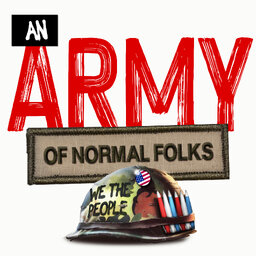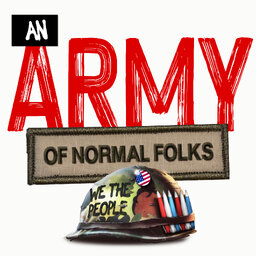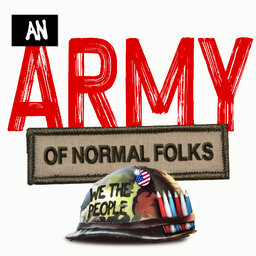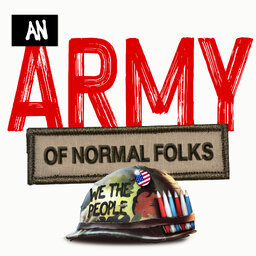Christina Mendez: The Fashion Designer Who Wound Up In The Trades (Pt 1)
While working as a fashion designer, Christina found herself being the only girl volunteering with an army of tradesmen to renovate buildings for nonprofits—and she loved it! The amazing work of Servant’s Heart Ministry has turned out to be her true calling that she never could have expected.
In 2 playlist(s)
An Army of Normal Folks
Our country’s problems will never be solved by a bunch of fancy people in nice suits talking big wor…Social links
Follow podcast
Recent clips

How America Lost “We” — And How You Can Help Rebuild It Today
16:17

What If We Stopped Treating People Like Mascots? (Pt 1)
39:18

What If We Stopped Treating People Like Mascots? (Pt 2)
1:00:46
 An Army of Normal Folks
An Army of Normal Folks
